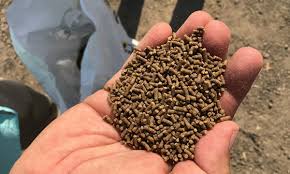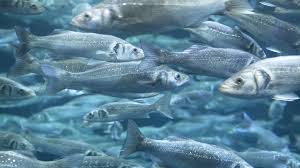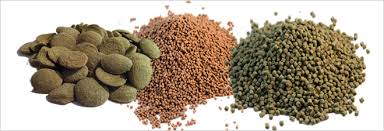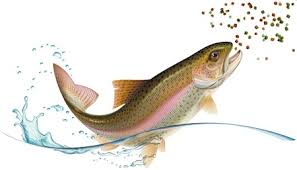Fish Nutrition is a critical aspect of aquaculture and fish farming, directly impacting the growth, health, and survival of fish populations. Like other animals, fish require a balanced diet to thrive, ensuring that they receive the necessary nutrients for energy, growth, and immune function.
Proper fish nutrition is essential not only for individual fish health but also for maximizing production and sustainability in aquaculture systems. This process involves providing fish with a diet that meets their specific nutritional requirements, which vary based on species, age, and environment. Fish farmers and researchers continuously work to optimize fish diets, as better nutrition translates to higher quality, faster-growing, and more resilient fish.
In the wild, fish obtain nutrients from a variety of sources, including plants, small animals, and microorganisms. However, in aquaculture, it is up to fish farmers to replicate and even improve on this natural diet by providing formulated feeds. These feeds are scientifically designed to deliver the right balance of proteins, fats, vitamins, minerals, and carbohydrates.
Protein is a particularly important component, as it supports muscle development and overall growth. Fish are also unique in that they require certain fatty acids, such as omega-3 and omega-6, which are crucial for maintaining cell structure and function.
The nutritional needs of fish differ significantly from those of terrestrial animals. For example, fish are able to metabolize proteins more efficiently due to their lower energy requirements for movement in water. Additionally, fish have a unique digestive system that influences their nutritional intake and requirements.
Herbivorous fish primarily consume plant-based diets, while carnivorous species rely heavily on animal-based protein sources. Omnivorous fish, on the other hand, can digest a combination of both. These dietary habits shape the type of feed used in aquaculture, as diets are customized to suit specific species.
Vitamins and minerals are also critical in fish nutrition, helping to prevent deficiencies that can lead to poor health, disease, and even mortality. Common vitamins required by fish include Vitamin C, which supports immune function, and Vitamin D, which is essential for bone health.
Minerals like calcium and phosphorus are similarly important for skeletal development and metabolic processes. Without these nutrients, fish can suffer from deformities, weakened immune responses, and slower growth rates.
Another important consideration in fish nutrition is the impact on water quality. The type and amount of feed given to fish can influence the water’s chemistry, potentially leading to pollution and environmental degradation.
For example, uneaten feed and fish waste can increase levels of nitrogen and phosphorus in the water, which may cause harmful algal blooms and deplete oxygen levels. To minimize these effects, fish feeds are formulated for optimal digestibility, reducing waste and making the feeding process more efficient.
Essential Nutrients for Fish

Fish require a balanced diet that includes several essential nutrients to promote optimal health and growth:
1. Proteins: Proteins are vital for growth, tissue repair, and overall health in fish. They are made up of amino acids, some of which are essential and must be obtained from the diet. Fish feed typically includes protein sources such as fish meal, soybean meal, and other plant-based proteins.
2. Fats: Fats provide a concentrated source of energy and are essential for the absorption of fat-soluble vitamins (A, D, E, K). Essential fatty acids, particularly omega-3 and omega-6, are crucial for growth and development.
3. Carbohydrates: While not a primary energy source for fish, carbohydrates can serve as a supplementary energy source. They are typically derived from plant materials like grains and are essential for digestive health.
4. Vitamins: Vitamins play various roles in metabolic processes, immune function, and overall health. Key vitamins for fish include B vitamins (like B1, B2, B6, and B12), vitamin C, and vitamin E.
5. Minerals: Minerals such as calcium, phosphorus, potassium, and trace elements (like zinc and selenium) are essential for skeletal development, enzyme function, and overall physiological processes.
Protein Requirements in Fish Diets
Proteins are crucial for fish growth and development. Here are some key points regarding protein requirements:
1. Growth Stages: The protein requirements of fish vary according to their growth stage. Fry (young fish) generally require higher protein levels (around 40-50%) to support rapid growth, while adult fish may need less (around 25-35%).
2. Sources of Protein: High-quality protein sources include fish meal, shrimp meal, and plant-based proteins like soybean meal. A balanced diet with various protein sources helps ensure a complete amino acid profile.
3. Protein Digestibility: The digestibility of protein sources is important; fish can only utilize what they can digest. Formulating diets with easily digestible proteins enhances growth rates and feed efficiency.
4. Effects of Protein Deficiency: A deficiency in protein can lead to stunted growth, weakened immune systems, and increased susceptibility to diseases. Regular monitoring of fish health and growth rates can help assess dietary effectiveness.
Carbohydrates and Energy Needs
While proteins and fats are primary energy sources, carbohydrates also play a role in fish diets. Here are important aspects of carbohydrates and their energy needs:
1. Energy Contribution: Carbohydrates provide energy but should not exceed 20-30% of the diet for most fish species. Excess carbohydrates can lead to poor growth and digestive issues.
2. Sources of Carbohydrates: Common sources of carbohydrates in fish diets include corn, wheat, and other grains. These ingredients can also help bind feed pellets, improving feed efficiency.
3. Role in Digestion: Carbohydrates can promote gut health and improve digestion. Some fish species require carbohydrates for efficient digestion, while others thrive with low levels.
4. Balancing Energy Sources: A well-balanced diet should include a mix of proteins, fats, and carbohydrates to meet the fish’s energy needs without compromising health. Adjustments may be necessary based on specific species and growth stages.
Read Also: Recommended Fertilizer Placement Methods
The Role of Fats in Fish Nutrition

Fats are essential in fish diets and provide numerous benefits:
1. Energy Source: Fats are a concentrated source of energy, supplying about 2.25 times more energy per gram than carbohydrates and proteins. This energy is crucial for growth, reproduction, and overall health.
2. Essential Fatty Acids: Fish require specific fatty acids, such as omega-3 (EPA and DHA) and omega-6, which are critical for maintaining healthy cell membranes, brain function, and immune responses. These acids cannot be synthesized by fish and must be included in their diet.
3. Absorption of Vitamins: Fats aid in the absorption of fat-soluble vitamins (A, D, E, K). Adequate fat intake ensures that fish can utilize these essential vitamins effectively.
4. Flavor and Palatability: Fats enhance the flavor and palatability of fish feed, making it more appealing to fish. This can lead to improved feed intake and overall growth performance.
Vitamins for Fish Health
Vitamins are vital for various physiological functions in fish:
1. Metabolism Support: Vitamins play essential roles in metabolic processes, helping fish convert food into energy and maintaining healthy growth.
2. Immune Function: Vitamins such as C, E, and A support the immune system, helping fish resist diseases and infections.
3. Deficiency Symptoms: Deficiencies in specific vitamins can lead to various health issues, including poor growth, reduced immunity, and deformities. For example, vitamin C deficiency can cause scoliosis and weakened immune responses.
4. Sources of Vitamins: Fish diets often include vitamin supplements or ingredients rich in vitamins, such as fish meal, algae, and green leafy vegetables, to ensure adequate intake.
Mineral Requirements in Fish Diets
Minerals are essential for fish health and play several important roles:
1. Structural Functions: Minerals such as calcium and phosphorus are crucial for bone and teeth development. They help maintain the structural integrity of fish.
2. Enzymatic Reactions: Minerals act as cofactors for various enzymes, aiding in metabolic reactions necessary for growth and development.
3. Electrolyte Balance: Sodium, potassium, and chloride are essential for maintaining osmotic balance and proper hydration within fish.
4. Sources of Minerals: Fish diets can include mineral supplements or natural ingredients like marine algae, which provide essential minerals.
The Importance of Water Quality in Nutrition
Water quality is a critical factor in fish nutrition and overall health:
1. Nutrient Availability: Poor water quality can affect the availability and absorption of nutrients. For example, high levels of ammonia or nitrite can stress fish, impairing their ability to utilize nutrients effectively.
2. Health and Growth: Clean, well-oxygenated water supports fish health and promotes optimal growth rates. Fish in high-quality water are generally more resilient to diseases.
3. pH and Temperature: The pH and temperature of water can impact metabolic processes and nutrient uptake. It is important to maintain optimal water conditions for the specific species of fish being raised.
4. Regular Monitoring: Regular testing of water quality parameters, such as ammonia, nitrite, nitrate, pH, and dissolved oxygen levels, is essential to ensure a healthy environment that supports effective nutrition.
Read Also: 8 Medicinal Health Benefits of Dioscorea oppositifolia (Chinese Yam)
Types of Fish Feed and Their Nutritional Value

Fish feed comes in various forms, each with specific nutritional values:
1. Dry Feed (Pellets): This is the most common type of fish feed. It contains a balanced mix of proteins, fats, carbohydrates, vitamins, and minerals. Pellets come in different sizes to accommodate various fish species and sizes.
2. Wet Feed (Canned): Wet feed is high in moisture and provides a palatable option for many fish. It usually contains a high protein content and is often used for species that require high-fat diets.
3. Frozen Feed: This type of feed includes live or frozen foods such as brine shrimp, bloodworms, or krill. It is rich in protein and provides essential nutrients, making it suitable for predatory fish.
4. Live Feed: Live feed, such as daphnia or rotifers, is highly nutritious and stimulates natural hunting behavior in fish. It is often used in breeding and raising fry (young fish).
5. Specialty Diets: These are formulated feeds designed for specific species or life stages of fish, including growth, breeding, or health maintenance. They address unique nutritional needs and may include added supplements for optimal health.
Feeding Strategies for Optimal Fish Growth
Implementing effective feeding strategies can maximize fish growth:
1. Feed Frequency: Regular feeding schedules improve nutrient absorption. Depending on species, fish may require feeding multiple times a day or less frequently.
2. Portion Control: Providing appropriate portion sizes prevents overfeeding and minimizes waste. A general guideline is to feed fish an amount they can consume in 5-10 minutes.
3. Monitor Behavior: Observing fish behavior during feeding helps assess their health and appetite. Reduced activity or refusal to eat can indicate potential health issues.
4. Quality of Feed: Using high-quality, nutritionally balanced feed enhances growth rates and reduces the risk of diseases. Ingredients should be fresh and sourced from reputable suppliers.
5. Adjusting Diet: Modifying the diet based on the fish’s growth stage, season, or health status ensures optimal nutrition. For example, increasing protein levels during growth phases supports muscle development.
Common Nutritional Deficiencies in Fish
Fish may experience nutritional deficiencies that affect their health and growth:
1. Protein Deficiency: Inadequate protein levels can lead to stunted growth, weakened immune systems, and increased susceptibility to diseases. It is vital to ensure a balanced protein intake.
2. Vitamin Deficiencies: Lack of essential vitamins, such as Vitamin C, can cause deformities, poor wound healing, and reduced immune function. Supplementing with vitamin-rich feeds helps prevent these issues.
3. Mineral Deficiencies: Insufficient minerals, like calcium and phosphorus, can result in skeletal deformities and poor bone health. Proper mineral supplementation is crucial, especially for growing fish.
4. Fatty Acid Deficiencies: Omega-3 and omega-6 fatty acids are vital for growth and health. A deficiency can lead to poor growth rates and health problems, making it essential to include adequate sources in the diet.
Innovations in Fish Nutrition and Feeding
Recent advancements in fish nutrition aim to improve feed efficiency and fish health:
1. Alternative Protein Sources: Research is exploring sustainable protein sources, such as insect meal and plant-based proteins, to reduce dependency on fish meal and enhance sustainability.
2. Nutritional Supplements: Innovative supplements, such as probiotics and prebiotics, promote gut health, improve digestion, and enhance nutrient absorption in fish.
3. Smart Feeding Systems: Technology-driven feeding systems use sensors and automated feeders to optimize feeding times and amounts, reducing waste and improving growth efficiency.
4. Functional Feeds: These are specialized feeds designed to support specific health benefits, such as enhancing immune responses or improving stress tolerance, leading to healthier fish populations.
Do you have any questions, suggestions, or contributions? If so, please feel free to use the comment box below to share your thoughts. We also encourage you to kindly share this information with others who might benefit from it. Since we can’t reach everyone at once, we truly appreciate your help in spreading the word. Thank you so much for your support and for sharing!
Read Also: The Evolution of Marketing
Frequently Asked Questions
We will update this section soon.

